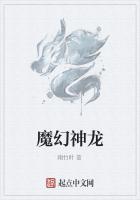PRESIDENT OF ``THE NATIONAL''
In 1900 Miss Anthony, then over eighty, decided that she must resign the presidency of our Nation- a l Association, and the question of the successor she would choose became an important one. It was conceded that there were only two candidates in her mind--Mrs. Carrie Chapman Catt and myself-- a nd for several months we gave the suffrage world the unusual spectacle of rivals vigorously pushing each other's claims. Miss Anthony was devoted to us both, and I think the choice was a hard one for her to make. On the one hand, I had been vice-president at large and her almost constant companion for twelve years, and she had grown ac- c ustomed to think of me as her successor. On the other hand, Mrs. Catt had been chairman of the organization committee, and through her splendid executive ability had built up our organization in many states. From Miss Anthony down, we all recognized her steadily growing powers; she had, moreover, abundant means, which I had not.
In my mind there was no question of her superior qualification for the presidency. She seemed to me the logical and indeed the only possible successor to Miss Anthony; and I told ``Aunt Susan'' so with all the eloquence I could command, while simul- t aneously Mrs. Catt was pouring into Miss Anthony's other ear a series of impassioned tributes to me. It was an unusual situation and a very pleasant one, and it had two excellent results: it simplified ``Aunt Susan's'' problem by eliminating the element of per- s onal ambition, and it led to her eventual choice of Mrs. Catt as her successor.
I will admit here for the first time that in urging Mrs. Catt's fitness for the office I made the greatest sacrifice of my life. My highest ambition had been to succeed Miss Anthony, for no one who knew her as I did could underestimate the honor of being chosen by her to carry on her work.
At the convention in Washington that year she formally refused the nomination for re-election, as we had all expected, and then, on being urged to choose her own successor, she stepped forward to do so. It was a difficult hour, for her fiery soul re- s ented the limitations imposed by her worn-out body, and to such a worker the most poignant ex- p erience in life is to be forced to lay down one's work at the command of old age. On this she touched briefly, but in a trembling voice; and then, in furtherance of the understanding between the three of us, she presented the name of Mrs. Catt to the convention with all the pride and hope a mother could feel in the presentation of a daughter.
Her faith was fully justified. Mrs. Catt made an admirable president, and during every moment of the four years she held the office she had Miss Anthony's whole-hearted and enthusiastic support, while I, too, in my continued office of vice-president, did my utmost to help her in every way. In 1904, however, Mrs. Catt was elected president of the International Suffrage Alliance, as I have mentioned before, and that same year she resigned the presi- d ency of our National Association, as her health was not equal to the strain of carrying the two offices.
Miss Anthony immediately urged me to accept the presidency of the National Association, which I was now most unwilling to do; I had lost my ambition to be president, and there were other rea- s ons, into which I need not go again, why I felt that I could not accept the post. At last, however, Miss Anthony actually commanded me to take the place, and there was nothing to do but obey her. She was then eighty-four, and, as it proved, within two years of her death. It was no time for me to rebel against her wishes; but I yielded with the heaviest heart I have ever carried, and after my election to the presidency at the national convention in Washing- t on I left the stage, went into a dark corner of the wings, and for the first time since my girlhood ``cried myself sick.''
In the work I now took up I found myself much alone. Mrs. Catt was really ill, and the strength of ``Aunt Susan'' must be saved in every way.
Neither could give me much help, though each did all she should have done, and more. Mrs.
Catt, whose husband had recently died, was in a deeply despondent frame of mind, and seemed to feel that the future was hopelessly dark. My own panacea for grief is work, and it seemed to me that both physically and mentally she would be helped by a wise combination of travel and effort. During my lifetime I have cherished two ambitions, and only two: the first, as I have already confessed, had been to succeed Miss Anthony as president of our association; the second was to go around the world, carrying the woman-suffrage ideal to every country, and starting in each a suffrage society.
Long before the inception of the International Suf- f rage Alliance I had dreamed this dream; and, though it had receded as I followed it through life, I had never wholly lost sight of it. Now I realized that for me it could never be more than a dream.
I could never hope to have enough money at my disposal to carry it out, and it occurred to me that if Mrs. Catt undertook it as president of the Inter- n ational Suffrage Alliance the results would be of the greatest benefit to the Cause and to her.












